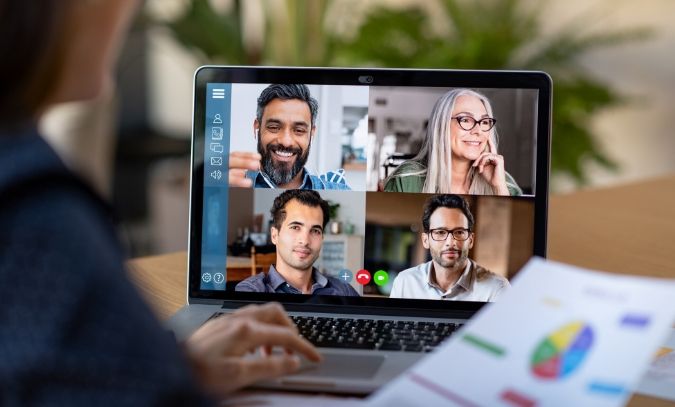Yes, I Can: Special Needs Students and Inclusive EducationLearn how to address physical, developmental, emotional, behavioural, and sensory impairments in the school environment.
Erasmus+ course summary
Special needs is an umbrella term for a staggering array of diagnoses: physical (e.g. muscular dystrophy, chronic asthma, epilepsy), developmental (e.g. dyslexia, processing disorder, autism), behavioural/emotional (e.g. ADHD, oppositional defiance disorder, panic attacks), and sensory impaired (e.g. blind, visually impaired, limited hearing). Understanding the characteristics of special needs and their implications for behaviour, learning and the ability to process information is critical for anyone working or interacting with special needs students. Their needs are commonly defined by what a child can't do—milestones unmet, foods banned, activities avoided, or experiences denied. These hindrances can hit families hard and may make special needs seem like a tragic designation. That is why this course helps the participants plan inclusive lessons and create inclusive school environment and empowers them to work with the emotions and attitudes of parents. "Ask ‘How will they learn best?’ not ‘Can they learn?’." – Jaime Escalante
Session dates
Ljubljana, SI21 - 26 October 2024 - Confirmed
2 - 7 December 2024 5 - 10 May 2025 |
FeaturesRelated |
You don't need to be a superhuman to practice inclusive education.
Integrate some of the most powerful strategies that engage learners across the board: assessment for learning, peer tutoring, co-operative learning.
Course Content
PROGRAMME DAY-BY-DAY
Training usually takes place between 9:00 am and 14:00 pm, followed by after-class activities, that are optional.
DAY 1 We start off with an introductory meeting, explanation of practical arrangements and presentation of the participants and timetable. The participants are encouraged to express their expectations, needs and wishes regarding the content of the programme and learning methods. * We then continue with understanding differences: this part provides an overview of different types of special needs, including physical, developmental, emotional/behavioural, and sensory impairments. The emphasis is on introducing the consequences for teaching and learning and the students strengths and weaknesses, as well as on how to make an effective contact with them. Special needs of the physically and sensory impaired students and their learning process. Design and development of learning material: we use the term “universal design” to emphasise the inclusive design of instructions to make it meaningful and useful for all the students. We also look at best practices for documents such as using clear fonts, organising text with headings, and describing images with alternative text. DAY 2 The phenomena we briefly look into are: hyper- and hypo- reactivity, autistic spectrum, body awareness, ability to focus, aggression, depression, defiance, psychosomatics, as well as traumatic experiences, early relational trauma, and transgenerational family role and pattern transmission. We consider how they affect the learning process and the relationships with peers and teachers. Once the students’ underlying and invisible experiencing is better understood, their possible strong emotional and behavioural reactions to situations can also be seen and experienced by the teachers and caregivers in a different way, thus making the adults and even schoolmates more successful in their prevention and coping strategies. DAY 3 Best practices in inclusive education, benchmarking and exchange among participants. Half day excursion. DAY 4 Creating an inclusive school environment and working with parents: parents’ perceived competence, attitudes and beliefs towards school, communication with parents (discussing concerns, listening, producing written information), involvement of parents in school life and their child’s learning. DAY 5 To be able to help the special need students and their schoolmates in creating an inclusive school environment, tolerating and appreciating differences and each other’s personal space and promoting positive behaviour, teachers (and parents) need sufficient self-care, supervision, supportive peer and home environment. Teachers’ professional and personal growth, the availability of support and motivation for it might be the most important factor in dealing with these challenges in the classrooms. In working with parents, their perceived competence, their attitudes towards school, family relationships, and past experiences regarding difficulties and getting help, are all important to consider, as well as how the responsibilities and guilt are being distributed. The analysis of gained knowledge and skills and key learning points are discussed as well as planning the follow up activities, dissemination and implementation of learning outcomes. DAY 6 Evaluation and farewell. Documentation and certificates of attendance. * Some changes in the programme are possible - the content of the course is always adapted to the participants previous knowledge, expectations and requirements. The participants receive the Informational Booklet a few weeks prior to the start of the course. |
ERASMUS+ COURSES BY PRIMERA
Use diversity in your classroom to enrich learning experience of all students.
INTERNATIONAL ERASMUS+ LEARNING WITH PRIMERA
Become a member of Primera's international learning community.
Your network is a family you choose. |
ERASMUS+ COURSES BY PRIMERA
Practice strength-based and personalized curriculum. |





